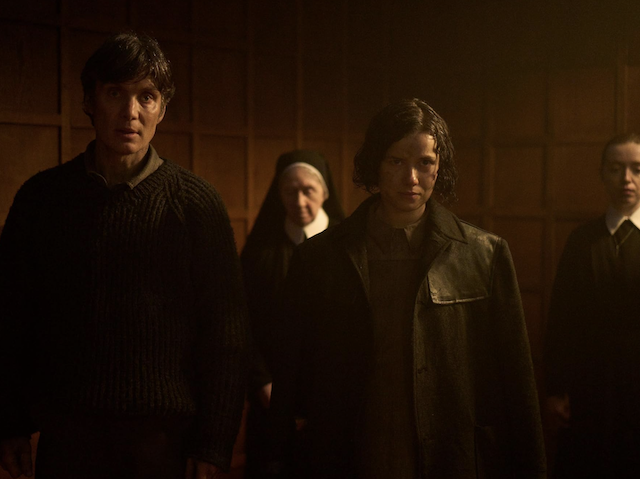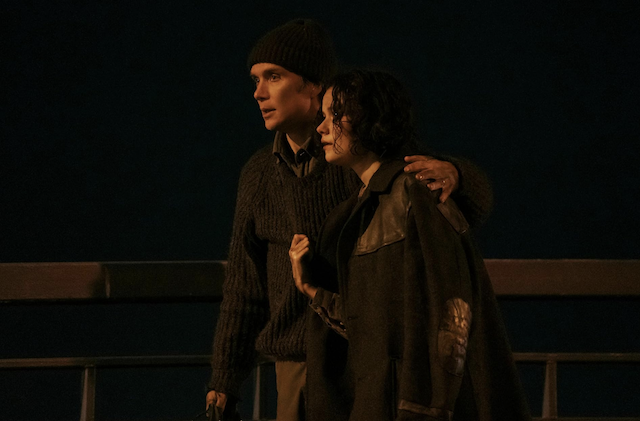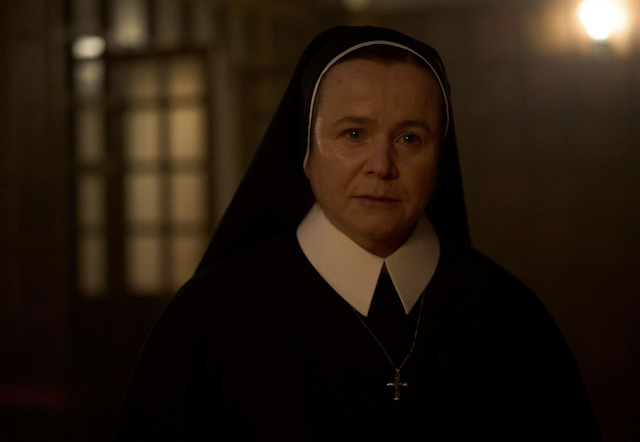
Well-meaning protagonists contemplating their morality as they struggle with their complicity in sin is a powerful driving force in character-driven films. That’s certainly the case with recent Oscar-winning actor Cillian Murphy‘s latest drama, Small Things Like These.
While set nearly 40 years ago, the movie thrives on its evocative, impressionistic heartbreaks that still find their way into modern ethical dilemmas. While Murphy’s character, Bill Furlong, is presented as being taciturn and aloof at times, the performer also highlighted the protagonist’s overall empathetic nature. The protagonist possesses an observant and perceptive nature that allows him to question his community’s implicit involvement in morally ambiguous situations.
Small Things Like These is a self-defining passion project for the Irish star, who has garnered long-standing acclaim over the course of his two decades-long career. After winning the Academy Award earlier this year for his portrayal of the titular theoretical physicist in Oppenheimer, Murphy was able to shepherd his new smaller, impressionistic feature.
As both the lead actor and producer on Small Things Like These, Murphy picked the project’s creative team. The crew includes screenwriter Enda Walsh, who also penned the actor’s career breakthrough, Disco Pigs. The new film is based on the 2021 historical fiction novel of the same name by Claire Keegan. The screen adaptation was helmed by Tim Mielants, who previously directed Murphy in Peaky Blinders.

Murphy pitched the screen adaptation of Small Things Like These while shooting Oppenheimer. As a result, Matt Damon, one of his co-stars on the historical biopic, signed on to serve as a producing partner through his company, Artists Equity, on the new drama.
Small Things Like These takes place in the bleak winter of 1985 in the small Irish town of New Ross. Coal merchant Bill Furlong works hard to support his wife Eileen (Eileen Walsh) and their five daughters, while also maintaining the respect of his neighbors with his steady, circumspect demeanor.
But things begin to unravel for Bill when he unwittingly glimpses an act of cruelty, suggesting that something even more dark and widespread is taking place inside the local convent. The town’s convent served as one of Ireland’s notorious Magdalene Laundries, where thousands of young women were imprisoned and forced into labor.
Also spurred by memories of his dark childhood, Bill must confront his past and the complicit silence of his small town, which is controlled by the Catholic Church, surrounding the convent. As a result, he must decide whether to take action or remain silent.
While Walsh infused the screen adaptation’s overarching story with the moral challenges of small Irish towns in the mid-1980s, the movie also creates the introverted protagonist’s emotions in a commensurate way. As an initially emotionally distant family man who learns to become more sympathetic to his community’s needs, Murphy effortlessly eases into Bill’s perceptive nature throughout the story.
From outward appearances Bill is leading a blessed life with his successful business and thriving family. However, his overall unease in life becomes more subtly apparent when he witnesses a young pregnant woman, Sarah (Zara Devlin), being forced to move into the local covenant until she delivers her baby.
Murphy delivers a brilliantly understated performance as Bill in the film. The protagonist contemplates being caught between his faith and his conscience when he becomes aware of the abuse Sarah is being subjected to within the convent.
Bill wishes to help and protect the young woman from Sister Mary (Emily Watson), the convent’s corrupt Mother superior. He feels driven to save Sarah as he wouldn’t want his young daughters to experience the same plight. However, the protagonist also realizes that if he assists Sarah, he may receive backlash from the church that could harm his family and business.

Small Things Like These also thrives in its emphasis on its visual to help accentuate Bill’s emotions and motivations within his social conditions. Murphy uses his physicality to help emphasize how his character internally harbors his secrets. Bill’s ethical queries are kept inward, etched into the creases in his skin. He attempts every night to wash his hands of the pain he carries with him from bearing the burden of truth.
Mielants worked with the drama’s director of photography, Frank van den Eeden, to craft cold, isolating framing that depicts Bill as a man who has always carried his pain alone. The intimacy of the camera angles and movements that highlight how the protagonist now possesses knowledge that separates him from his family and community.
Small Things Like These thrives in its slow burn storytelling approach by Walsh and intimate cinematography from van den Eeden. The character-driven movie’s visuals highlight how the Magdalene Laundries at times brought more harm than good to their communities, and the intimation they used to keep that abuse hidden.
Bill’s determination to help Sarah break free from Sister Mary’s grasp emphasizes how minor acts of kindness can be the strongest defense against corruption. Anchored by Murphy’s soulful lead performance, Small Things Like These is a powerful argument for doing what’s right during times of complicity.
Overall: A-
Lionsgate will distribute Small Things Like These in U.S. theaters this Friday, November 8. The drama’s theatrical release in America comes after it played at numerous film festivals worldwide, including the 33rd Philadelphia Film Festival.
If you like the review, share your thoughts below!

